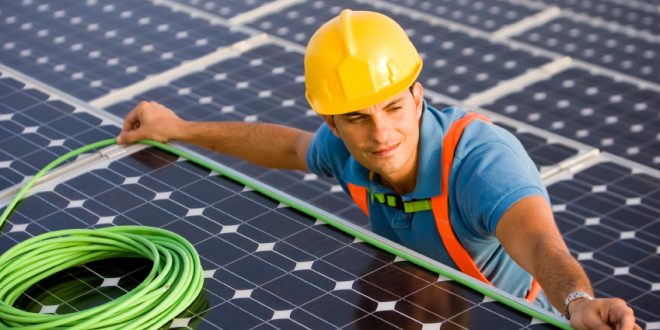One of the hallmarks of the 21st Century would have to be solar panels. These devices have become more widespread in recent years, and part of the reason for that is because they are a tremendous asset to a homeowner and society in general, producing an essential commodity. Here are some of the things you need to know regarding these solar panels:
What is a solar panel and how does it work?
When it comes to solar panels, the most important thing to understand is that this machinery begins and ends with the sun. Solar panels are also known as PV panels and they are used to convert the sunlight into electricity that can power your electrical loads. You can use your solar panels for such diverse things as remote sensing, telecommunications equipment, cabins, and of course ordinary commercial and residential electric systems as well.
A solar panel works by capturing the photons, or particles of light, and then they knock them free of atoms, allowing them to generate a flow of electricity. The beauty of that humongous solar panel is that it is actually made up of a tremendous amount of smaller units called photovoltaic cells. These are linked together to make the entire solar panel. The cells will establish an electric field, collect the electrons, and then have them transferred to electrical wires.
Are solar panels a good green investment?
If you are looking for solar panels for home then you are probably wondering if they are not only a good investment for your pocket book but a good green investment as well. The answer to that question is an emphatic yes. First of all, investing in solar panels for your home will ensure that you have energy independence and you will no longer be dependent on the oil and gas grid. When the demands for energy continue to climb, you will have it covered. According to Unbound Solar, “The research finds that, on average, solar panels increase home value by $14,329 – or 3.74% more than their non-PV counterparts.”
What are the costs of installing solar panels?
When it comes to the costs of installing solar panels, there are many variables to consider. First of all, you have to consider your state of residence. The first thing you need to realize is that location will greatly affect your rate for electricity. While the national average for electricity is 13 cents per kilowatt-hour, this can be higher or lower based on your given state. Generally, the higher your bill, the more you will benefit from the installation of your solar panel and the more that it will offset your cost of installing it.
Another wrinkle to consider would be the size of your system. In general, if you go with the 5kW system, it will cost you a rate of $3 to $5 per watt, which will lead to about $15,000 to $25,000. Of course, there are often tax credits and incentives that can offset this cost even further. Knowing your current energy usage can greatly assist you in knowing how much you will pay for solar panels.
Solar panels are a great investment as long as you do your homework!



